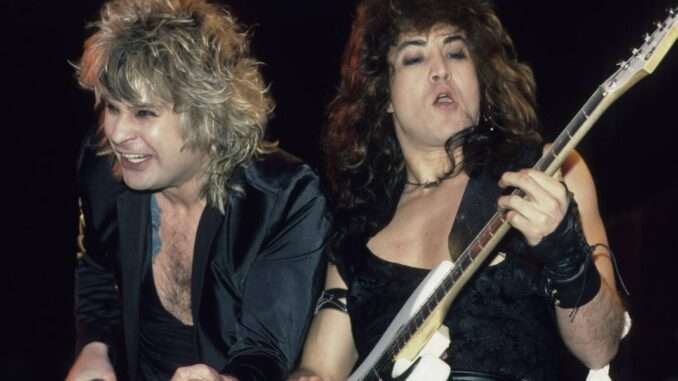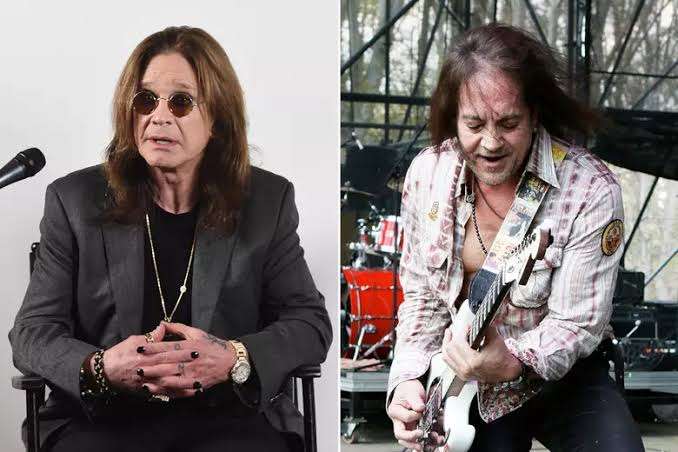
Ozzy Osbourne’s career has been defined not just by his iconic voice and stage presence, but also by the guitar players who helped shape his sound. From the groundbreaking brilliance of Randy Rhoads to the thunderous edge of Zakk Wylde, each guitarist has brought a different chemistry to the Prince of Darkness’s music. For Jake E. Lee, who stepped into the spotlight after Rhoads’ tragic death and became a vital creative force during the mid-1980s, his relationship with Ozzy was both impactful and complicated.
When asked about what his personal connection to Ozzy was like during their time together, Lee offered an honest reflection that was strikingly different from the warm, almost familial bonds Ozzy shared with some of his other guitarists. “Well he wasn’t really a father figure, and not really a brother,” Lee admitted. “I suppose for me it was less familial. We never really got that close; I don’t know why that is. Our personalities didn’t mesh as closely as his did with Randy or Zakk.”
Lee’s answer highlights an important truth about band dynamics: not every working relationship needs to be rooted in deep personal closeness to produce magic. “It worked well, I liked him and I assumed he liked me – but it was always awkward around him. He was the boss; that’s how I looked at him,” Lee explained. “But on stage it worked. There was a definite connection.”
That “connection” was undeniable. During his tenure with Ozzy, Lee co-wrote and performed on two of the singer’s most enduring albums—*Bark at the Moon* (1983) and *The Ultimate Sin* (1986). His guitar tone and songwriting gave Ozzy’s solo catalog some of its heaviest and most melodic moments, balancing the virtuosity of the era with his own raw, distinct style.
Even if the offstage chemistry never blossomed, their artistic synergy on stage and in the studio was powerful enough to leave a permanent mark on heavy metal history.
Still, Lee never fully stopped wishing for a more personal bond. “I did always want to reconnect with him on whatever level.
Not necessarily musically, but that would have been nice,” he said. The sentiment reveals a vulnerability beneath Lee’s candidness—a longing for closure or perhaps simply a chance to know Ozzy beyond the dynamic of boss and employee.
Lee is careful not to place blame on either side. “On a personal level it was less so. It
Leave a Reply